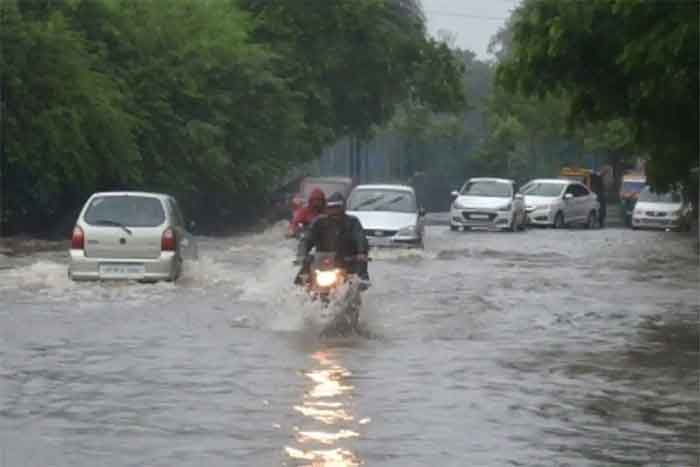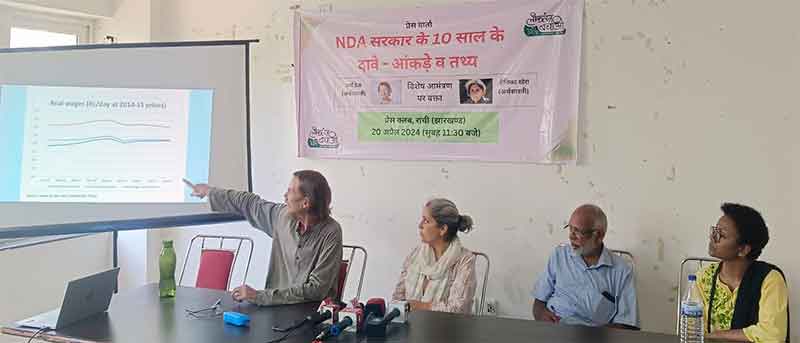SATHI, a Pune-based NGO, has brought out a compendium of 23 testimonies from patients or their kin, documenting price gouging by private hospitals in Maharashtra.
The report, ‘Patients’ voices during the pandemic: Stories and analysis of rights violations and overcharging by private hospitals’, documents the fact that hospitals blatantly disregarded government price capping, and regulatory bodies seemed all to have crumbled.
The cases were documented between October and December 2020 and included respondents between the ages of 24 to 85. Total bills for treatment varied from Rs75,000 to Rs14 lakh; 10 of the 23 patients owed bills exceeding Rs3 lakh, and two had bills of over Rs14 lakh. Only five of the patients had raised complaints with district authorities, and of the total 23 cases, 11 had died and their relatives were interviewed.
The document shows that such exorbitant pricing by private hospitals occurs not only in larger cities, but also in rural areas, where people are even less likely to confront corruption in fear that they might need the services of the doctors later. Less than two percent of all hospital bills in Pune, among the worst-affected cities in India, was audited. Only about four per cent of patients benefited from the state insurance scheme, Mahatma Jyotiba Phule Jan Aarogya Yojna. The report documents instances of concealing of information from patients about government schemes they could benefit from.
“These cases provide a grassroots perspective to develop a much-needed counter-narrative to challenge national and global euphoria on harnessing the private health sector in achieving public health goals…” the report notes.
The pandemic came as a double whammy for patients, forced to choose between fund-starved, poorly maintained and understaffed government hospitals and expensive, non-transparent private hospitals.
 One widow who lost her schoolteacher husband in a village in Kolhapur district said she was forced to pay Rs1.5 lakh in advance to get her husband admitted when his fever spiked. The hospital was enrolled under the state insurance scheme, but staff did not divulge details of how she could benefit from that scheme. Once her husband died in September 2020, she was informed that the bill had come to Rs14,21,000.
One widow who lost her schoolteacher husband in a village in Kolhapur district said she was forced to pay Rs1.5 lakh in advance to get her husband admitted when his fever spiked. The hospital was enrolled under the state insurance scheme, but staff did not divulge details of how she could benefit from that scheme. Once her husband died in September 2020, she was informed that the bill had come to Rs14,21,000.
There was no accounting for the different heads under which the money was spent – she was only verbally informed of the total amount and expected to pay. The body would not be released to the family until full payment was made. On repeated follow-up the hospital finally produced a bill for Rs9,42,057. The hospital was unable to explain the difference. The poor woman depended on kin to pay the hospital bills, and now has debts to repay.
One woman whose mother was admitted to a hospital in Pune in July 2020 and expected the expenses to be taken care of under the state health insurance scheme since her mother had tested positive for Covid was later informed that the Covid test showed a negative result, and she would need to pay Rs1 lakh, the amount incurred on treatment until then. The woman was perfectly aware of irregularities since she was being denied insurance cover and expected to cough up money, but between caring for her mother and fighting the hospital staff, she was so exhausted that she paid up the money after asking friends and family, and now owes a debt to several people. The bill included personal protective equipment for Rs12,000, even though the government had declared that this would be provided free of cost.
The problems of people in rural areas of the state were worse, as they had few options for getting bills audited and harder mechanisms for raising grievances. Many rural patients also rushed to urban centres for treatment, further pushing up the cost of accessing medical services, and possibly creating conditions for further spread of infection as hospitals were crowded.
One person in Kolhapur recalled that the doctor prescribed medicines worth Rs30,000 even before his brother was admitted to hospital. The small shoe-shop owner was hard-pressed to pay the bill but had nowhere to turn for help. When his brother’s condition worsened, he was moved to another hospital just 10 minutes away but was charged Rs3000 for the ambulance service. When they got to the other hospital, they were told that the treatment involved a “package” of three days which cost Rs1 lakh! His brother died, and the medical records were not shared with the family by the private hospital.
The case studies provide evidence of overcharging for treatment and diagnosis, denial of treatment at Covid-19 designated hospitals; concealing of information about the government schemes patients could benefit from; hiding from patients the details of the treatment and its estimated cost; demands for huge advance payments at a time of crisis and withholding of dead bodies to extort payment.
One 40-year-old who survived the infection at the peak of the pandemic said he had borrowed money to pay the Rs 3 lakh bill that was foisted on his family for treatment. He stayed 22 days in a hospital in Pune, some distance from his village. He spent 12 days in ICU and 10 in the general ward. He paid his fat bill in cash, borrowing money from family members.
“I was being given oxygen daily. When my condition stabilized, I was shifted to the general ward where I stayed for another ten days. Though I was able to talk, I was extremely weak, so much so I did not have the strength to get up from the bed. But even in that state, I was constantly fretting about how much the stay in the hospital was costing me and how would I be able to arrange for the funds,” he said.
He was personally acquainted with the doctor and said he was satisfied with treatment – he was also charged what the government had recommended, although lab investigations alone cost Rs25,000 and medicines from the pharmacy at the hospital cost Rs1,27,000, on which he was granted a five per cent discount.
“I found out that the hospital got the approval for MJPJAY a week later after my discharge. But that was of no use to me at all. I had to pay the whole amount in cash. I used all my savings and also borrowed the rest from my in-laws to settle the bill,” the report quotes him as saying.
A series of other similarly rude experiences have been neatly documented by SATHI, in the document authored by Shweta Marathe, Shakuntala Bhalerao, Dr Kanchan Pawar, Dr Dhananjay Kakade and Dr Abhay Shukla. The attempt is to create a document that could be useful to counter the arguments of those promoting privatization as a panacea to India’s ills.
In conclusion, the document notes that healthcare must become a social good accessible to all. This report proves again the wisdom of the Joseph Bhore committee, that in the years leading up to Indian independence, had championed the idea that the government must assume full responsibility for the health of the nation – that was too important a responsibility to devolve to private actors.
Rosamma Thomas is an independent researcher and journalist based in Pune, Maharashtra












































